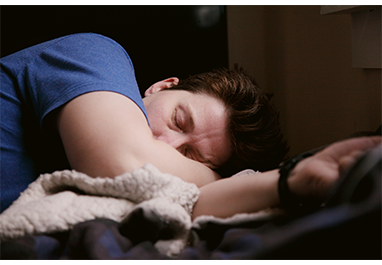OPD - 022 69318050 / 022 6931 8051 / 08657907751 | Boardline - 022-69318000 / 69301000 | Casualty - 022-69318063 / 64 / +91 86579 07754 | Ambulance - +91 97692 50010 / 75063 58779
Examining the crucial impact of sleep on physical and mental well-being, highlighting the dangers of sleep deprivation and the growing concern of sleep apnea.
Sleep is fundamental for maintaining overall health, yet many underestimate its importance. Dr. Pushkar A. Shikarkhane, consulting physician at Lilavati Hospital, emphasizes that adequate sleep supports tissue repair, memory consolidation, and hormonal regulation, bolstering the immune system and enhancing cognitive function. Conversely, chronic sleep deprivation increases the risk of serious health issues like depression, diabetes, heart disease, and obesity. Dr. Shikarkhane notes that modern lifestyles, including screen addiction and environmental stressors, disrupt sleep patterns. He recommends 7-9 hours of uninterrupted sleep during physiological hours (approximately 10:00 p.m. to 7:00 a.m.) for optimal health. Insufficient sleep can lead to a range of health problems, including hypertension, diabetes, heart attack, stroke, fatty liver, GERD, increased accident risk, dementia, Parkinson's disease, infertility, PCOD, obesity, addictions, anxiety, depression, erectile dysfunction, frozen shoulder, allergies, hair loss, and glaucoma, and increased susceptibility to infections, including COVID-19.

Sleep apnea, particularly obstructive sleep apnea (OSA), is a growing concern across all age groups. OSA, characterized by repeated breathing interruptions during sleep, results in poor sleep quality due to decreased blood oxygen levels. Symptoms include excessive sleepiness, snoring, choking, frequent urination, unrefreshing sleep, morning headaches, fatigue, dizziness, and poor concentration. OSA can begin in childhood due to structural issues, leading to attention deficit disorders and poor academic performance. OSA can be diagnosed through a home-based sleep study. Dr. Shikarkhane recommends this test for individuals with symptoms or related conditions. Preventive measures and treatments for OSA include early diagnosis and intervention in childhood, such as airway orthodontic treatment or tonsillectomy. In adults, weight reduction, myofunctional exercises, yoga, pranayama, 1 CPAP therapy, mandibular advancement devices, and ensuring 7-9 hours of sleep are crucial. He also advises having an early dinner and avoiding screens for at least an hour before bedtime.
_bnse.jpg)
Following these basic principles can help you make the most of the festive season while not compromising your health and skin.
Dr. Pushkar Shikarkhane at Lilavati Hospital